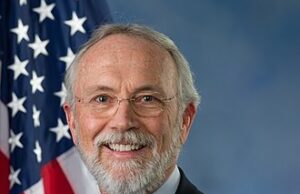EFC ANNOUNCES AVAILABILITY OF DRAFT ELIGIBILITY GUIDELINES TO ADVANCE CLEAN WATER, CLEAN AIR, AND GREEN JOBS ENVIRONMENTAL BOND ACT INVESTMENTS
Washington – RealEstateRama – The New York State Environmental Facilities Corporation (EFC) today announced proposed eligibility guidelines for programs being designed to implement the historic $4.2 billion Clean Water, Clean Air, and Green Jobs Environmental Bond Act of 2022. The draft criteria for clean water infrastructure projects will assist municipalities in applying for funding for crucial projects that will improve water quality, strengthen resiliency, and combat the impacts of climate change.
Environmental Facilities Corporation President and CEO Maureen A. Coleman said, “EFC is excited to work with DEC and DOH to start the process of making Environmental Bond Act funding for water infrastructure available through EFC’s popular grant programs. EFC encourages small, rural, and Disadvantaged Communities to reach out to our Community Assistance Teams so we can help ensure the funding is awarded to the communities that need it most.”
On November 8, 2022, New Yorkers overwhelmingly approved the $4.2 billion Environmental Bond Act. State agencies, local governments, and partners will be able to access funding to protect water quality, help communities adapt to climate change, improve resiliency, and create green jobs. Bond Act funding will support new and expanded projects across the state to safeguard drinking water sources, reduce pollution, and protect communities and natural resources from climate change.
An inter-agency working group comprised of multiple state agencies is currently identifying needs for environmental funding across the state and developing program logistics, including additional eligibility guidelines for how projects will be selected and delivered, through a transparent and collaborative process. The first outcome of these efforts is the draft eligibility guidelines introduced by the Governor today to help administer water infrastructure funding supported by both the Environmental Bond Act and the Water Infrastructure Improvement (WIIA) and Intermunicipal Grants (IMG) programs. The Environmental Bond Act specifically named WIIA and IMG programs as tools to help leverage a portion of up to $650 million in water quality improvement and resilient infrastructure funding.
EFC administers the WIIA and IMG programs working closely with the departments of Health (DOH) and Environmental Conservation (DEC) and has awarded more than $2 billion in water infrastructure grants since 2015.
DEC Commissioner and EFC Board Chair Basil Seggos said, “Governor Hochul is prioritizing the creation of a collaborative and effective process to help get Environmental Bond Act funding into communities, and the criteria announced today is an important first step. DEC looks forward to continuing to work with our many partners to help implement this clean water infrastructure funding, and the many other opportunities the Bond Act will provide.”
Acting State Health Commissioner Dr. James McDonald said, “Governor Hochul understands that investing in clean water and air makes all New Yorkers healthier. Adding the Bond Act priority of climate change mitigation to this grant program will strengthen its purpose of updating outdated infrastructure and safeguarding drinking water, while enhancing communities’ resilience to extreme weather.”
The eligibility guidelines released for public comment expand the WIIA/IMG grant programs’ legacy of modernizing aging systems and protecting drinking water by also incorporating the Bond Act priority of climate change mitigation to help strengthen communities’ ability to withstand severe weather. Eligible projects include those that address combined and/or sanitary sewer overflow impacts from extreme weather events, and those that combine green infrastructure and nature-based features to ensure climate resilient infrastructure. Disadvantaged Communities will receive at least 35 percent of the benefits of the combined WIIA/IMG and Environmental Bond Act funding. Additional eligibility guidelines to advance Bond Act investments will be released for public comment this year.
As part of the ongoing statewide effort to confront perfluoroalkyl and polyfluoroalkyl substances (PFAS) pollution and help communities on the frontlines of PFAS contamination, the criteria continue to prioritize grant awards for drinking water projects that address emerging contaminants exceeding the State-determined Maximum Contaminant Level (MCL). The State’s goal is to provide grants to communities that need help in their efforts to tackle emerging contaminants in their drinking water. To date, more than $400 million in state water grants have been awarded to projects that treat PFAS above the MCL.
This builds on the Governor’s commitment to help small, rural, and disadvantaged communities access water infrastructure funding through the launch of the state’s Community Assistance Teams. Teams host regional events and connect communities with experts who can help them undertake their critical water infrastructure projects. These Teams provide on-site or virtual consultations to help communities across the state jump start planning, submit funding applications, and see their projects through to completion. For more information, go to efc.ny.gov/CAT.
The full eligibility guidelines are available on the Environmental Notice Bulletin. Public comments will be accepted until 5 p.m. on Friday, April 14. Submit written comments to Máire Cunningham at " rel="noreferrer"> or 625 Broadway, Albany, NY 12207.
For more information about the Environmental Bond Act, go to https://ny.gov/bondact, and for information about WIIA and IMG, go to https://efc.ny.gov/wiia.
###
Contact:
Heather Cameron
(518) 402-6924













